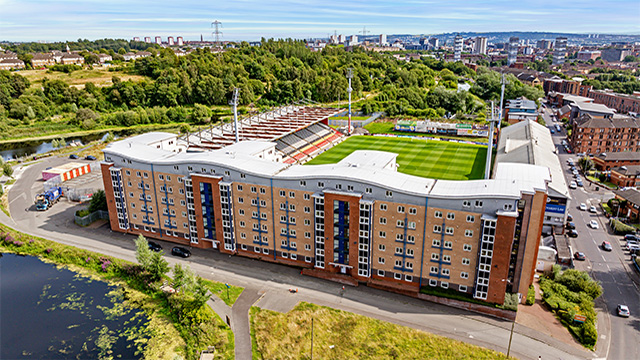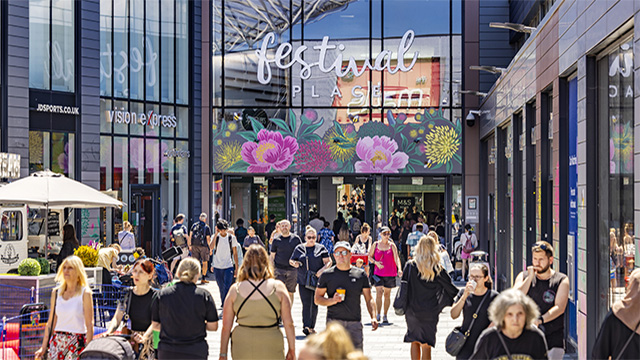Why it’s time to unlock our loos
COMMENT The Labour government has set a clear mission to deliver growth through a whole host of tax and policy reforms aimed at unlocking investment, restoring stability and enabling our economy to prosper in the long term. Although we are unlikely to know the real impact of these measures for months or even years to come, the objective is clear: to balance the books and create value for current and future generations.
But if Rachel Reeves wants to facilitate inclusive growth, we need to bring back the public toilet.
As it stands, our loos are in a sorry state. Across the country, we have lost a staggering 25% of public toilets since 2010, with local authority expenditure on facilities being halved during this time. Notably, providing public loos is not a statutory requirement for councils, so it’s often the first thing to be cut when budgets are squeezed.
COMMENT The Labour government has set a clear mission to deliver growth through a whole host of tax and policy reforms aimed at unlocking investment, restoring stability and enabling our economy to prosper in the long term. Although we are unlikely to know the real impact of these measures for months or even years to come, the objective is clear: to balance the books and create value for current and future generations.
But if Rachel Reeves wants to facilitate inclusive growth, we need to bring back the public toilet.
As it stands, our loos are in a sorry state. Across the country, we have lost a staggering 25% of public toilets since 2010, with local authority expenditure on facilities being halved during this time. Notably, providing public loos is not a statutory requirement for councils, so it’s often the first thing to be cut when budgets are squeezed.
I’m a runner with Crohn’s disease – a heady combination that often means I get an urgent need to go to the loo when jogging around local streets and parks. Over the years I have developed a mental map of where I can go should the need arise, and it’s alarming how scarce my options are.
Loo leash
The pandemic brought this issue into focus for many for the first time. Suddenly, when on our daily walks or socialising outside, we needed to think about where the nearest loos were and plan our trips accordingly.
Unfortunately, this is a frustrating – and continued – reality for those with health conditions. The “loo leash” means one in five people leave home less often than they would like. More than half of the public deliberately limit the amount they drink if out and about, which has been proven to lead to serious health problems.
These are staggering and heartbreaking statistics. We simply must provide facilities that allow people basic dignity. And we must ensure our cities are truly accessible – from housing estates and office buildings to public realm and community facilities.
It’s time we realised that public toilets are vital community infrastructure and treated them as such. Far from “nice to haves” that can be shuttered as purse strings tighten, they allow people to venture outside of their homes and spend time in their local area. And – coming back to Labour’s growth agenda – it stands to reason that if more people feel confident to be out and about, they will spend more money too.
An Age UK survey found 81% of older people would be more likely to visit shops, cafés and businesses if there were better toilet provision. Considering our ageing population, the value of the grey pound, already estimated at £320bn annually, is only going to increase.
The Soho Neighbourhood Forum published a report last month that throws this into sharp relief, albeit for a different demographic. It found that the lack of public loos is costing the area £4.9m per year in revenue for local businesses. Simply by creating and maintaining decent facilities, theatres, restaurants and bars would reap the rewards. Plus, as a hub of London’s night-time economy, the area’s status as an attractive and inclusive destination would improve too.
Spending more than a penny
Progress is being made, but it’s patchy and London is typically ahead of the rest of the country. Westminster recently announced it will be investing £12.7m over the next two years to refurbish eight sets of toilets, and TfL has committed to spending £5m to provide facilities across the network.
Imagine if we could replicate this in towns and cities across the country? Providing loos on our ailing high streets would increase footfall and dwell time, boosting local businesses and creating a much-needed sense of civic pride in places. Opening more toilets on transport networks would mean people could travel with confidence, rather than fear. And having more retailers make their loos available to the public would drastically increase the number of facilities available, with minimal cost or effort involved.
There’s no one quick fix that will unlock our public toilets. It will take creative thinking, partnership working and increased funding to refurbish, open and maintain facilities. But it’s high time the government and our industry recognised that doing so is fundamental to the prosperity of our cities, communities and economy.
Rose Marshall is associate director at ING Media











